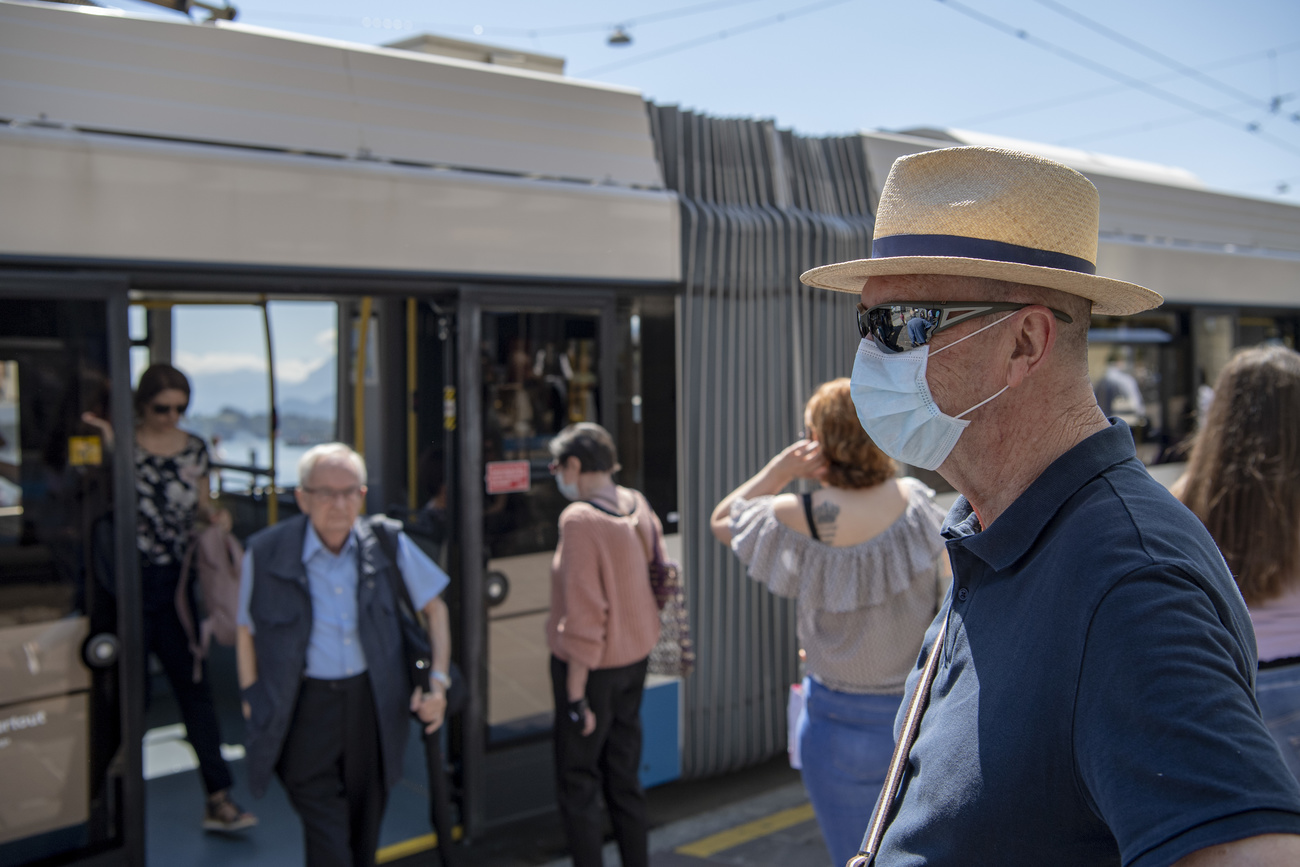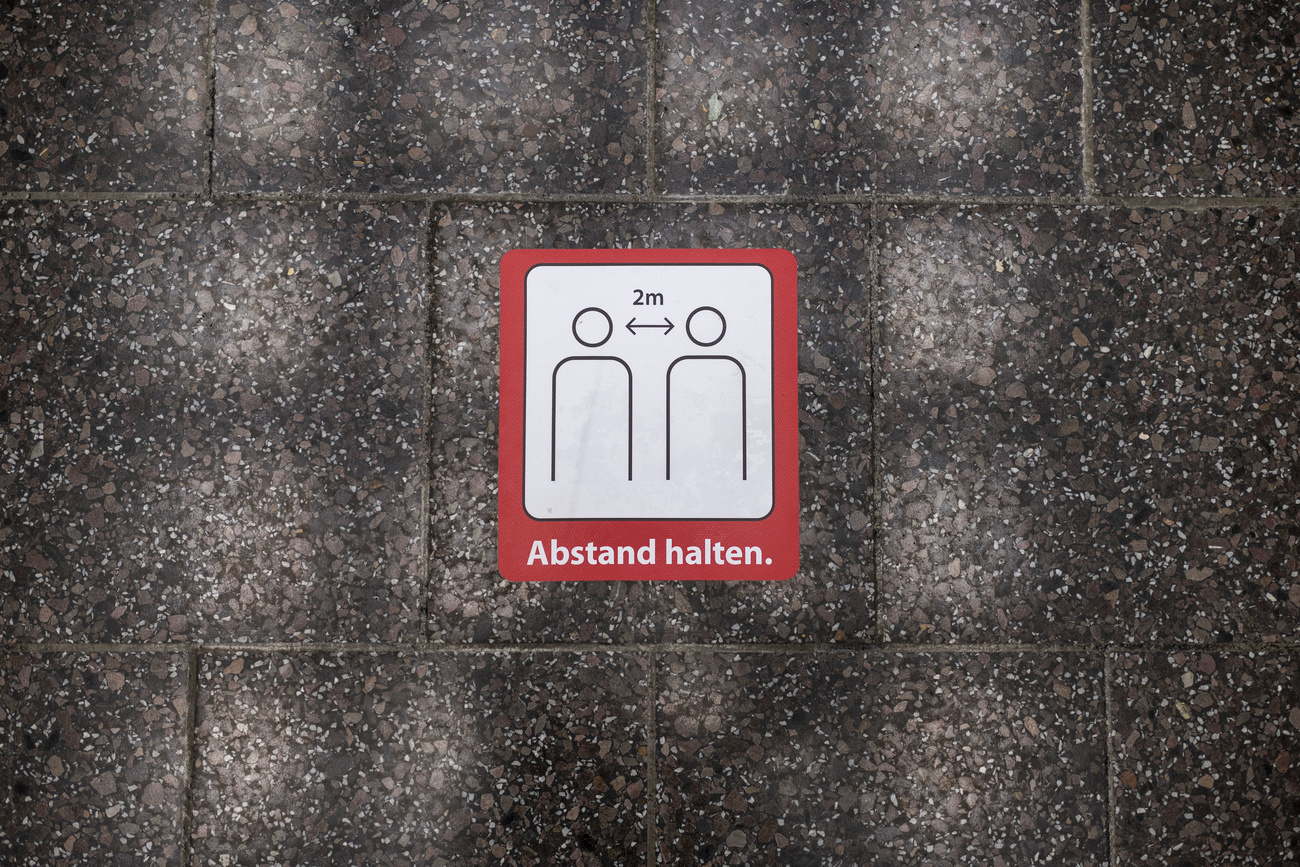
Masks declared obligatory on Swiss public transport

From Monday passengers on Swiss public transport will have to wear face masks, the government has announced. It will also impose a quarantine requirement for individuals entering the country from regions at high risk of Covid-19.
The decision is a response to the rising number of coronavirus infections and demands from cantons.
“Following the lifting of measures to combat the coronavirus pandemic, more people are using public transport,” the government said in a statement on Wednesday. “In many cases the recommended distance cannot be maintained.”
The mask requirement applies to everyone aged 12 or older. It applies in trains, trams and buses, mountain railways, cable cars and on ships. The Swiss Federal Railways said conductors will ask anyone not wearing a mask to leave the train and anyone refusing will be fined.

More
Three quarters of Swiss want face masks and more distance
Until now, the recommendation was to wear a mask during rush hour on public transport. However, the government admitted that few people have been doing so.
“We want to prevent a second wave,” said Interior Minister Alain Berset at a press conference. He said Switzerland had so far been out of step with its neighbours in not imposing such a requirement.
Simonetta Sommaruga, who holds the rotating Swiss presidency this year, said: “We’ve seen in recent days how quickly the virus can spread again.”
Some public transport operators expressed relief over the government’s decision on Wednesday. A spokesperson for the Bern regional transport company BLS told Swiss public television, SRF, that it welcomes “the uniform decision, since the BLS runs its trains through seven different cantons”.
The public transport employee union was also pleased with the decision but said it was “problematic” that train and bus conductors and staff were responsible for monitoring compliance with the requirement.
On Wednesday 137 new cases of Covid-19 were reported to the Federal Office of Public Health (FOPH), compared with 62 on Tuesday and 35 on Monday.
Ten-day quarantine
Also from Monday, anyone entering Switzerland from risk areas will have to undergo a ten-day quarantine. The FOPH keeps a corresponding list, which is updated regularly.
Those concerned must report to the cantonal authorities after entry. Airline and coach companies are also instructed not to transport sick passengers. The public health office is in the process of finalising its list of the risk areas.
In a statementExternal link, the government acknowledged the European Union recommendations on lifting entry restrictions for 15 specific countries starting July 1. It added that Switzerland is expected to follow these recommendations, but from July 20 and with the exception of Serbia.

More
Coronavirus: the situation in Switzerland

In compliance with the JTI standards
More: SWI swissinfo.ch certified by the Journalism Trust Initiative






























You can find an overview of ongoing debates with our journalists here . Please join us!
If you want to start a conversation about a topic raised in this article or want to report factual errors, email us at english@swissinfo.ch.